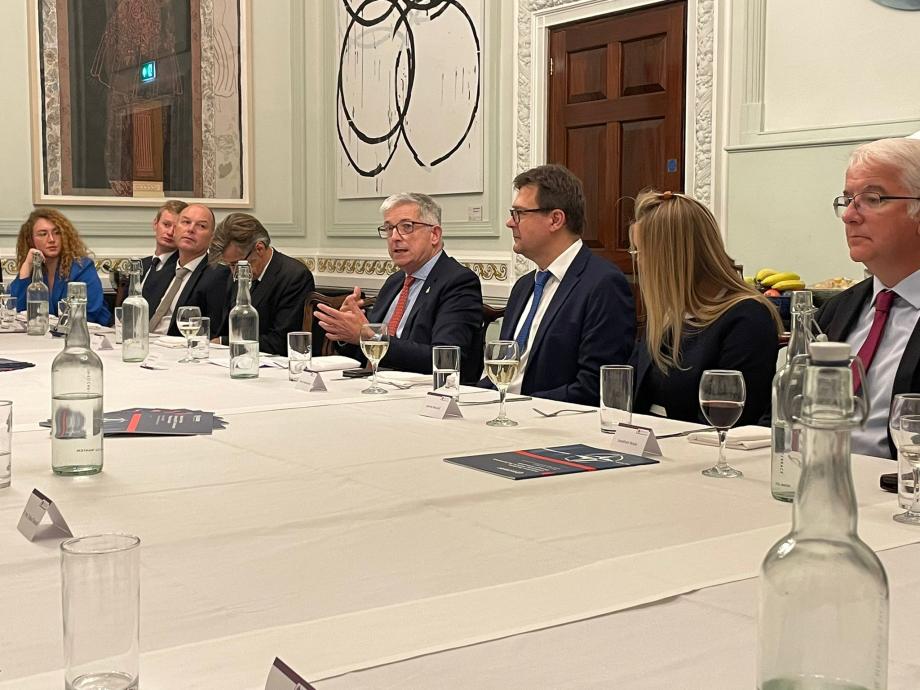Future Security & Defence Council: Dinner Briefing in London

As part of the Future Security & Defence Council (FSDC) project aiming to support NATO’s ongoing defence innovation work by portraying key elements of a future NATO Defence Innovation Ecosystem, GLOBSEC hosted a dinner briefing in London on Monday, October 10, 2022. The goal was to present the outcomes and recommendations of the project’s final report, “Adaptive Portfolio: Catalysing NATO’s Performance Through Innovation.”
The report focuses on three crucial issues – geoeconomics, innovation, and defence spending. It shines a light on the topics that should currently be at the centre of the Alliance’s attention and pushes NATO to test to failure. Simultaneously, the report’s findings and recommendations encourage stakeholders to do more, train more, and take a risk in innovation efforts.
The dinner briefing was attended by representatives of both the state and private sectors, think-tank experts, and the media. Such diversity around the table ensured various views and insightful opinions were voiced and exchanged.
FDSC member Vice Admiral Clive Johnstone started the discussion and provided an overview of the report’s key points and his take on the current security environment.
The discussion and the ideas of the report overlapped with the war in Ukraine and its current developments. Innovations championed by Ukrainian soldiers and tested on the ground prove the high relevance of the topic and the need to focus on the future of warfare and the military.
Read the key takeaways below:
- An innovation ecosystem and economic security within the Alliance are lacking. Innovation is carried out properly. Defence innovation has to be pushed to the frontline to ensure capability-driven projects, military needs, and the fulfilment of maximum potential.
- Education, specifically military education, must be delivered according to the needs and capabilities that need to be built. Often, education is not the centre of focus and hence does not deliver the specific expertise required. This is a challenge for the industry and, ultimately, the whole Alliance.
- Innovation is driven by innovative minds, not technology. The potential of new technology cannot be exploited without a change of approach, which is hard to achieve in a multi-national organisation such as NATO. There are different perceptions of what is important and what should be invested in. Moreover, various regulations and policies slow down the common approach and interoperability process.
- Modernisation of the industrial base is necessary, but there is little common understanding of how it should be done. Countries defend their own positions and priorities. Innovation and related spending are hard to sell to society, which is why it often lacks political support. More understanding and a more engaging economic and industrial society is needed to fuel the change.